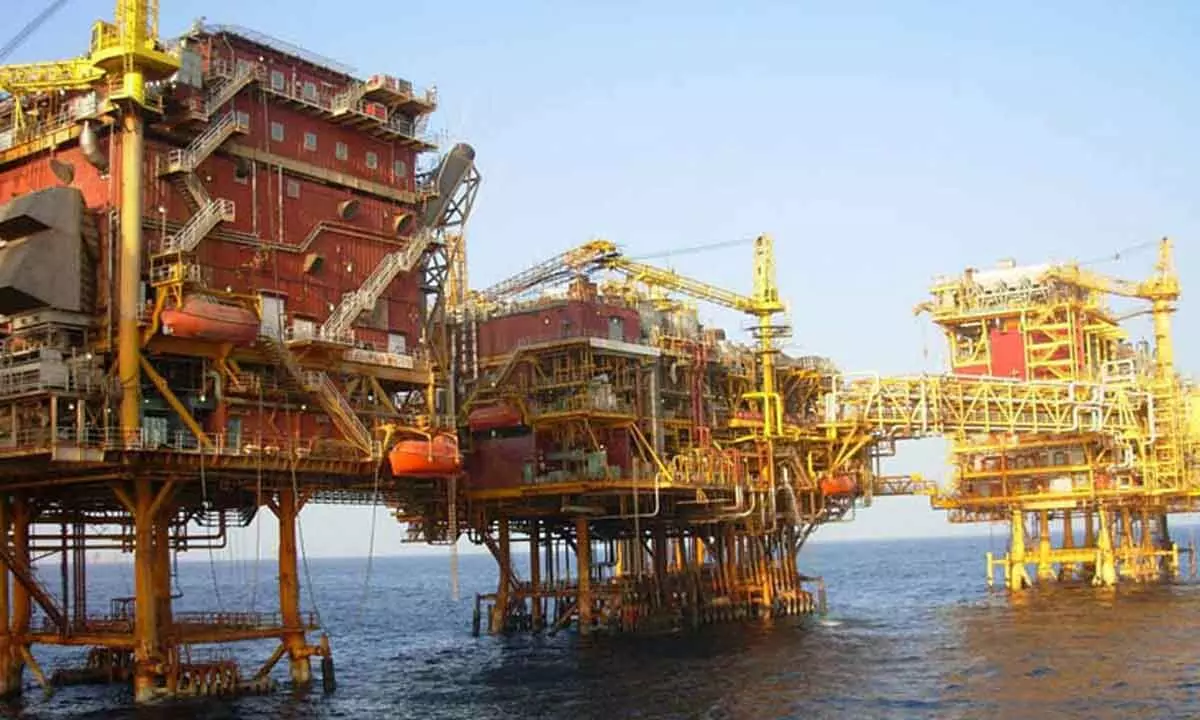Marketing, pricing freedom key to catalyzing investments in gas fields
Costs of finding and producing natural gas from deposits lying several hundred metres below seabed are market driven, producers tells govt-appointed panel reviewing gas pricing
image for illustrative purpose

New Delhi: Pricing and marketing freedom are a must to ensure billions of dollar investment as costs of finding and producing natural gas from deposits lying several hundred metres below seabed are market driven, producers have told a government-appointed panel reviewing gas pricing.
In an investor call post announcement of company's second quarter earnings on October 21, Sanjay Roy, senior vice-president for exploration and production, Reliance Industries Ltd, stated that producers are being represented by Association of Oil and Gas Operators (AOGO) at the panel whose report is expected in the next few weeks. "Potentially, the upstream producers are saying that there should be marketing and pricing freedom, pursuant to the policies and the contracts," he said.
"The counter to elevated prices is increment to production, as we have seen in the case of KG-D6, and these investments will have to happen in frontier areas where there seems to be larger potential for such investments." Reliance and its partner BP plc of UK are investing about $5 billion in newer and deeper fields in the Bay of Bengal block KG-D6, which are now producing over 19 million standard cubic metres of gas per day or about 20 per cent of India's gas production. "You will need a huge scale of investments, billions of dollars, and for that to sustain, marketing and pricing freedom will be very important, particularly as costs are market driven. So, prices need to be similar," he said.
But gas consumers are seeking "some kind of cap" particularly in government-regulated APM gas which feeds city gas networks that sell CNG to automobiles and piped natural gas to household kitchens for cooking. "...We are also seeing representation from the consumers who have been projecting that there needs to be some kind of cap, particularly in gas," he said. Individual gas producers like Reliance haven't made any representation to the committee headed by Kirit Parikh, which has been asked by the Oil Ministry to look at setting a 'fair price to consumers'. Their association AOGO is doing the representation.
AOGO has told the panel that any mid-course changes through price caps not just go against pricing and marketing freedom contracts and government policy promises to companies, but also add to uncertainty to fiscal regime which would impact investments. The government biannually fixes gas prices based on rates prevalent in surplus nations. Rates according to this formula stayed below breakeven price of $3-3.5 per million British thermal unit for six years starting October 2015 but have jumped 5x in the last one year to $8.57 for old fields (APM gas) and $12.46 for difficult fields. This rise has prompted user industries to complain, following which the ministry set up a panel to suggest an affordable rate for the users.
AOGO told the panel that doubling India's production from current levels to cut rising imports and meet the target of raising share of natural gas in the primary energy basket to 15 per cent by 2030 from current 6.7 per cent, would require at least Rs 2-3 lakh crore investment, which can be viable only if a stable fiscal and contractual regime with market-based pricing is provided. Only such a regime can attract investors to commit long-term funds for the exploration and development of such areas.
There has not been any large hydrocarbon discovery in the country in the last more than a decade, resulting in sustained decline in domestic oil and gas production and the consequent rise in imports for meeting the vast energy demands of the world's fifth largest economy. Natural gas is used to generate electricity, produce fertilizers for crops, turn into CNG to run automobiles and piped gas into household kitchens for cooking. In absence of adequate domestic production, India has raised imports for the fuel by paying four-times to overseas suppliers than the price that domestic producers get. In the last two years, gas production from Krishna Godavari deep-sea has augmented domestic production because of pricing and marketing freedom granted in 2016 which made it economical to produce from fields. India requires sustained reserves accretion to ensure future oil and gas production. Roy said the revision of prices for the six-month period beginning October 1, 2022 would mean "better realisation (for Reliance) in the upcoming quarter."

